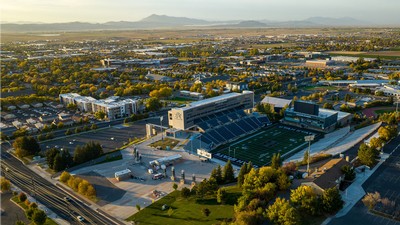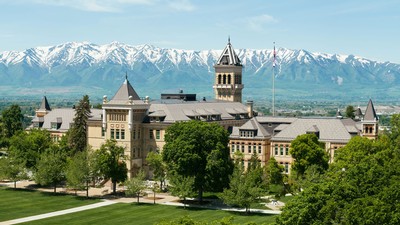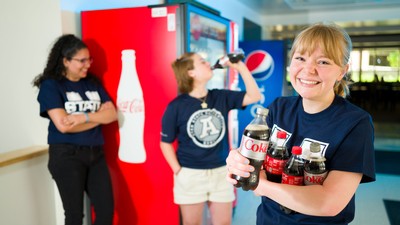Two College of Engineering Faculty Receive NSF CAREER Awards
USU civil and environmental engineering assistant professor Jeff Horsburgh.
February is turning out to be a banner month for Utah State University’s College of Engineering.
Earlier this month, two faculty members were chosen by the National Science Foundation to receive the prestigious CAREER Award. The two grants, approximately $500,000 each, will help advance fundamental research in areas of water resources engineering and computer science.
The CAREER award is NSF’s most distinguished grant program in support of junior faculty who exemplify the role of teacher-scholars through outstanding research, excellent education and the integration of education and research within the context of the mission of their organizations, according to NSF.
Jeff Horsburgh, assistant professor, Civil and Environmental Engineering
Providing access to clean water and improving urban water infrastructure are critical societal functions that will be increasingly difficult to sustain without significant technological advances. Water managers have begun to look to “smart” metering as one such technology that offers remote recording of water use at high temporal resolution in support of water end-use forecasting and demand management. And while smart meters show promise, they have failed to achieve widespread adoption in the United States.
Replacing existing, analog meters is expensive, and there is a lack of available cyberinfrastructure for extracting useful information from the large volume of data that smart meters produce. Thus, in most cases, water supply decision making and projections of future water demand are not informed by detailed information about the volume, distribution and timing of water use.
But Horsburgh is trying to change that with new advances in analytics and improvements to the cyberinfrastructure that will manage the data from smart meters. Horsburgh will create new tools to collect, shrink and transform the data into useful information products for water managers. The ongoing research will significantly close the gap in our ability to quantify and forecast urban water use.
Kyumin Lee, assistant professor, Computer Science
In recent years, crowdsourcing platforms have helped break down big, complex problems in areas like audio transcription, image identification, opinion studies, scientific research and more. Anyone with a computer can access a tiny piece of a problem and contribute to the solution that would otherwise be insurmountable for a single individual.
But there’s also a sinister side to crowdsourcing: the ability to organize large masses of paid shills who spread malicious content around the Web. These so-called ‘crowdturfers’ post false product reviews on e-commerce sites and create fake social media accounts to spread spam or malicious URLs. The combined effect of crowdturfing creates ripples through the entire web ecosystem and undermines even basic trustworthiness online.
Lee is developing new tools to detect and target crowdsourced manipulation. From falsified product reviews to artificial social media accounts, the study will help build a more trustworthy Internet and defend the open web ecosystem.
Related links:
- USU Department of Civil and Environmental Engineering
- USU Computer Science Department
- USU College of Engineering
Writer and Contact: Matt Jensen, 435-797-8170, matthew.jensen@usu.edu
Comments and questions regarding this article may be directed to the contact person listed on this page.








